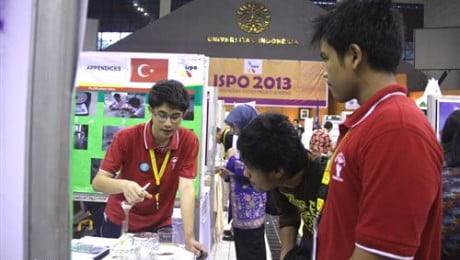Keyword: Fethullah Gulen

Turkey Regulator Demands Bank Asya Information Before Sukuks (1)
Turkey’s Capital Markets Board has asked to be informed of future issues, Cengiz Onder, head of investor relations at Bank Asya, said in a phone interview today from Istanbul. An official at the board, asking not to be named under government policy, said it’s seeking further documentation from Bank Asya before sales can resume, without giving further comment.

Islamic scholar Gülen offers condolences to ferry victims
Prominent Islamic scholar Fethullah Gülen, who also inspired the faith-based Hizmet movement, issued a message of condolence to the families of victims who were killed when a ferry sank off in South Korea, leaving more than 300 missing or dead.

Where does Gülen stand on: democracy, human rights, and minorities?
Gülen recognizes democracy as the only viable political system of governance. He denounces turning religion into a political ideology, while encouraging all citizens to take an informed and responsible part in political life of their country. He stresses the flexibilities in the Islamic principles relating to governance and their compatibility with a true democracy.

RELIABLE ENVIRONMENT : GULEN INSPIRED SCHOOLS
Gulen Inspired Schools provides an environment where they trust in a clear long-term gain. One of the main factors behind the success of these schools is commitment and dedications that have been presented by teachers and managers. One common characteristic of the staff is the commitment to the common goal to make a positive impact to the society.

Turkish officials cancel green passport of Islamic scholar Gülen
Nurullah Albayrak, Gülen’s lawyer, said the decision to cancel the scholar’s passport is politically motivated and has no legal basis. He said Gülen was granted a green passport after his application to the relevant authorities following the adoption of Article 4 of Law No. 5682, which allows certain state officials and retired or resigned public servants to apply for a green passport after a review of their status during their work.

Gülen: purge of public officials seems ‘arbitrary’
The Turkish Islamic scholar Fethullah Gülen, who has inspired the popular civic and social Hizmet (Service) movement, has said that the reassignment of thousands of public officials from their posts without any disciplinary procedures following the Dec. 17, 2013 corruption scandal seems to have been conducted on an arbitrary basis.

Is Hizmet being subjected to genocide?
Indeed, the word genocide brings to our minds mass killings and relocations of members of a race, usually under war-like conditions. Yet, genocide is not a war crime. It is not a type of crime committed against a specific race. Rather, it has wider connotations. This crime may be committed against a specific group, without massacring them and in a peaceful setting.
























